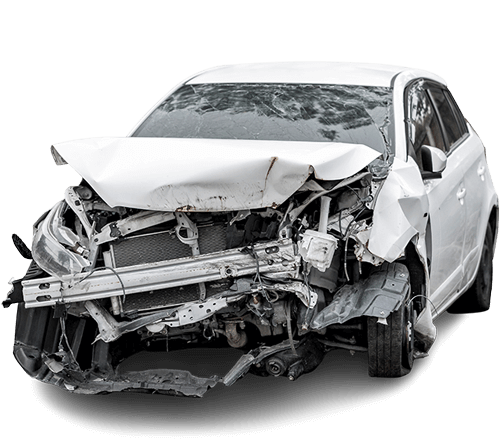Salvage Car Auction Checks
A salvage history auction check is a type of vehicle history check that provides information on a vehicle's salvage history, including whether it has been damaged, written off, stolen and recovered, or disposed of by the owner.
The check also includes details on the extent of the damage, repairs made to the vehicle, as well as pictures of the damage and auction information.
- £30k data guarantee
- Rated Excellent
- 8,000,000+ scans completed
- Instant report

Frequently asked questions about Salvage Car Auction Checks
What does it mean if a vehicle is salvaged?
A salvaged vehicle is a car that has been damaged to the extent that the insurance company has decided it is not worth repairing. The car is then classified as a “total loss” and given a salvage title.
Can I drive a salvaged vehicle?
No, a salvaged vehicle cannot be driven on public roads until it has been repaired and recertified by the appropriate authorities.
Are salvage cars worth buying?
Salvage cars are often priced lower than non-write off cars, making them an attractive option for buyers. However, it is important to check the extent of the damage, as a salvage title can affect insurance rates. VOSA regulations prohibit damaged vehicles with write-off categories that are deemed dangerous for the road.
How do I know if a vehicle has been salvaged?
You can check if a vehicle has been salvaged by using a service like ours that has a partnership with a company providing millions of vehicle records from auctions by salvage companies. You simply enter the vehicle’s registration number on our website and purchase a premium report to get access to the “Salvage History Check” feature. This will provide you with a summary of the vehicle’s salvage history, along with pictures and more details if available. You can also check the V5C registration certificate for any notes on previous damage or write-off history.
Why should you get a salvage history check?
If you are considering buying a used car, it’s important to know if the vehicle has been previously salvaged. A salvage check provides valuable information on a vehicle’s history and can help you understand its write-off status and the extent of any repairs that have been made.
Our website offers a salvage history check through our exclusive partnership with a company that provides over 2.6 million records of vehicles sold at auction by salvage companies. By entering the vehicle’s registration number on our website and purchasing a premium report, you can view a summary of the salvage details and a link to view more details and pictures. This includes pictures of the damage, as well as when and where the vehicle appeared at auction.
See what's included in our full vehicle history check
Outstanding Finance Check
Buying a car with outstanding finance can be an expensive mistake, avoid this by upgrading your car check
Car Write-off Check
How can you tell if a car is an insurance write off? We scan insurance databases to uncover if a car has been in an accident
Stolen Car Check
Get the assurance that you aren’t buying someone else’s property. Stolen car checks can help avoid that costly mistake
Previous Owner Check
How owners has it had? Frequent owner changes? Our vehicle keeper history check can uncover that information instantly
Mileage Anomaly Check
Uncover clocked cars with high mileage. Check if a vehicle has mileage issues.
Previous Number Plate Check
A numberplate check reveals the previous number plates linked to a vehicle and when it was changed.
Get comprehensive information on a vehicle’s salvage history and damages with Salvage Auction Checks. Our partnership with a company providing over 2.6 million records of auctioned vehicles allows us to provide you with pictures, auction dates, and locations.